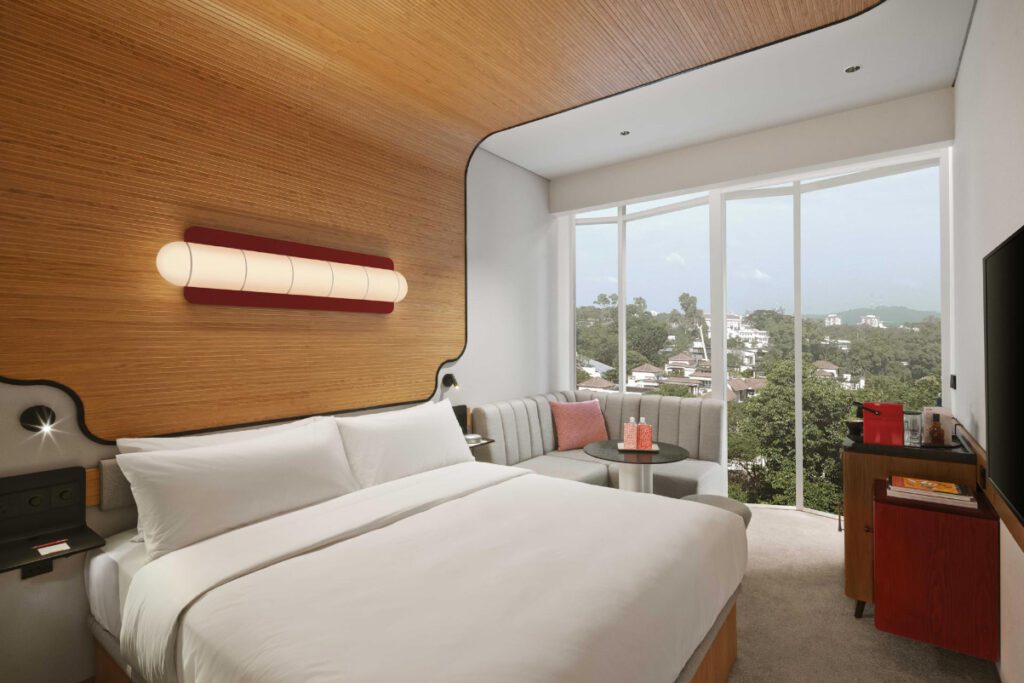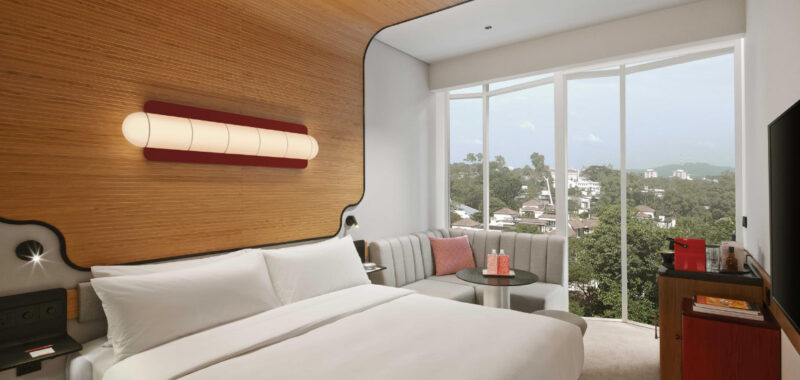
Skift Take
Singapore and Hong Kong were once seen by many travelers as shopping-centric destinations. But Singapore has recast itself as an experience destination with many live events, widening its lead against Hong Kong in tourism.
Singapore’s hotel market is surging ahead of Hong Kong’s, capitalizing on travelers attending the city-state’s major events while Hong Kong struggles.
Singapore has positioned itself as a premier destination for high-profile events and luxury travelers, while Hong Kong grapples with a softer corporate market and budget-conscious visitors, according to a report by Global Asset Solutions.
Why it matters: The rivalry between these two Asian travel hubs extends beyond banking, with hotel performance serving as a key indicator of international appeal.
By the Numbers:
- Singapore’s first quarter hotel occupancy: 77%
- Hong Kong’s first-quarter hotel occupancy: 73%
- Singapore’s average daily rate was $314. Its luxury hotel sector is thriving, with record-breaking revenue per available room.
- Hong Kong’s average daily rate was $204. Mid-scale hotels are performing well, but the luxury segment lags behind.
Singapore Taps Into the Experiential
Singapore has courted marquee live entertainment, theaters, and high-profile sporting events to cement its pitch as an ideal stopover for long-haul travelers.
Its approach to attracting major events is assertive. It negotiated for Taylor Swift to make Singapore her exclusive Asia Pacific stop on her Eras tour, and the concerts boosted hotel occupancy to over 83%, a record for the month of March.
The city-state’s bet on live event tourism is paying dividends for hotels. With superior large-scale venue infrastructure, it’s better positioned to host crowd-pullers. This month, Formula 1 Grand Prix drove room rates 10% higher than when the event was held last year, illustrating growing demand.
The events help generate buzz about the city, which actively promotes itself via creators and influencers on social media as a good stopover destination for long-haul travelers.
Hong Kong Aims to Close Gap
Hong Kong aims to become more competitive in winning bids to host large-scale events. Although it lacks a major stadium, it is completing a new 50,000-seat venue, set to open in 2025.
Hong Kong is struggling to shed its reliance on luxury retail. Many mainland Chinese consumers have been pulling back on luxury retail shopping because of the country’s troubled stock and housing markets. Foreign visitors increasingly can get the same types of luxury offerings elsewhere.
The city’s luxury segment is particularly hard-hit, with some top-tier hotels reporting occupancy as low as 45%.
Currency headwinds aren’t helping. Hong Kong pegs its currency to the U.S. dollar, making the city pricier relative to Shenzhen, Beijing, and Shanghai for consumers.
Some hotel owners are pivoting, eyeing property conversions to student housing. Their properties, which are older on average than Singapore’s hotels, are often more affordably switched to other uses than upgraded.
A shift of corporate offices from Hong Kong to other cities in recent years may reduce the number of business travelers passing through the city indefinitely. However, the city has many natural assets and has an opportunity to promote outdoor activities at its scenic vistas.
“A lot of people don’t realize how, compared to other major cities, there’s amazing outdoor recreation in Hong Kong, where you can get incredible views of the island within a few minutes of the city center,” said Douglas Louden, author of the report. “The city also needs to tell the story of old Hong Kong.”
Changes to visa regulations and promotions with flagship brands like Cathay Pacific could attract new categories of tourists.
What They’re Saying
- On Hong Kong: “They’ve sort of lost their mojo. It’s anecdotal, but in the central area of Hong Kong, you see less finance people walking around.” âDouglas Louden, a principal at Perceptions Hospitality.
- On Hong Kong: “The luxury sector is sluggish at this time. The Hong Kong currency peg to the US Dollar has meant the destination has become more expensive for the majority of visitors [from Greater China.” âDan Voellm, CEO of AP Hospitality Advisors.
- On Singapore: “The luxury sector in Singapore is performing well, we remain bullish on the future.” âKevin Croley, SVP of Development at Pan Pacific Hotels Group.
Accommodations Sector Stock Index Performance Year-to-Date
What am I looking at? The performance of hotels and short-term rental sector stocks within the ST200. The index includes companies publicly traded across global markets, including international and regional hotel brands, hotel REITs, hotel management companies, alternative accommodations, and timeshares.
The Skift Travel 200 (ST200)Â combines the financial performance of nearly 200 travel companies worth more than a trillion dollars into a single number. See more hotels and short-term rental financial sector performance.
Read the full methodology behind the Skift Travel 200.

